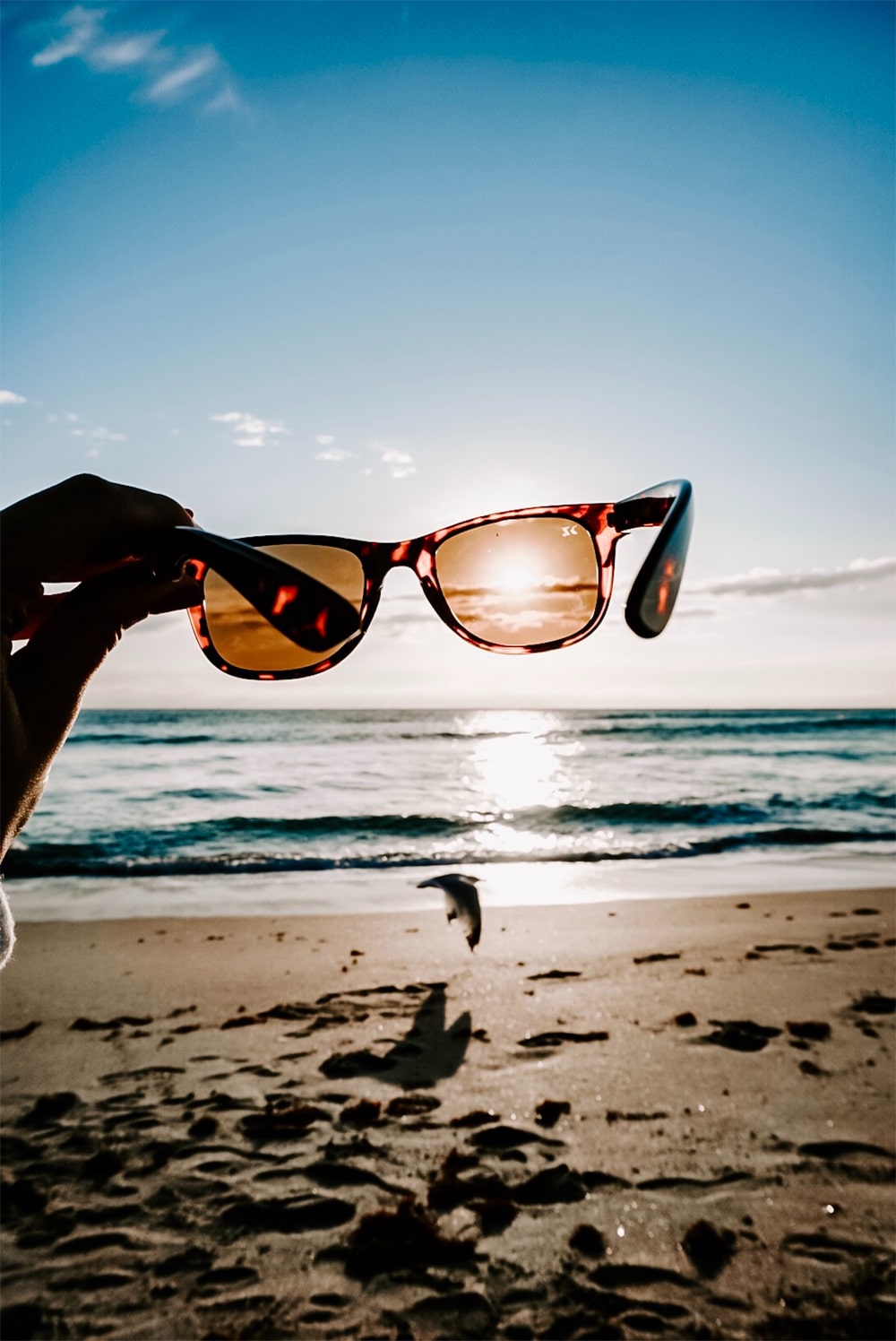
Sunglasses have been the epitome of “cool” for decades—and still are. Each new generation has their take on “shades,” while some versions, like the classic aviator, never seem to go out of style.
But sunglasses are more than a fashion statement: They’re essential eyewear for protecting your vision from harmful electromagnetic rays emitted by the sun. But be wary beware when you’re shopping for a new pair—not all sunglasses measure up as adequate protection against harmful sun rays.
First, though, you have to understand what exactly you’re protecting your eyes from—specifically two forms of ultraviolet radiation known as UVA and UVB. Although technically these ultraviolet rays are within the electromagnetic spectrum of light, you can’t see them with the naked eye because of the shortness of their wavelengths.
If you’ve ever gotten a sunburn (even on a cloudy day), you’ve experienced UV rays in action. Similar harm can come to your eyes: Long-term exposure increases your risk for abnormal growths on the eyes, accelerated cataract development or even cancer. Although any of these outcomes could be severe, protecting your eyes couldn’t be easier—simply wear a good quality pair of sunglasses when you’re out in the sun or driving.
As stated earlier, not all sunglasses protect alike—you’ll need to be choosy when shopping. Actually, it isn’t that complicated picking out a pair that will offer you high quality protection against UV sun damage. Here are a few buying tips that the staff of Hattiesburg Eye Clinic Optical recommends that you follow.
Look for a protection rating. When shopping for sunglasses, be sure they’re clearly labeled to provide 100% protection against UV-A AND UV-B rays. You might also see labels offering UV400 protection, which has become a more popular way among manufacturers of saying their product protects against both forms of UV rays.
The more lens coverage the better. The larger the lenses, the more protection your eyes will get, especially to protect against UV rays coming into the eyes from various angles. Wraparound lenses offering the most protection with some added bonuses—they can also protect your eyes from wind and heat evaporation (which can cause dry eyes), as well as keeping grit, dust or dirt out of your eyes.
Polarized lenses alone won’t protect you. Just because a pair of sunglasses are polarized doesn’t mean they’ll protect you from UV rays—only trust glasses specifically labeled for 100% UVA/UVB (or UV400) protection regardless of lens tint. With that said, though, polarized lenses can help decrease glare, which could eliminate eye strain and increase comfort.
One other thing—pricier sunglasses aren’t necessarily more protective than a less expensive pair. Depending on your fashion sense, you may find a cheaper pair to wear that offers great UVA/UVB protection.
Following these guidelines can help you choose the right pair of sunglasses for maximum protection while outdoors. You’ll also look cool—not a bad bonus for keeping your eyes safe from the sun.
For more information on eye health, visit our webpage. To learn more about how Hattiesburg Eye Clinic can improve your vision health, call 601-268-5910 (or toll-free 800-624-8254) or schedule a consultation with us online.


